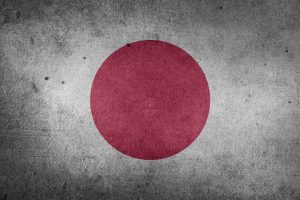Japan’s ruling Liberal Democratic Party is reeling under a political finance scandal that looks set to force a second reshuffle of Prime Minister Kishida Fumio’s Cabinet in three months.
Japanese politicians typically host fundraising events, where attendees pay to buy tickets. The various LDP factions set quotas for how much money each legislator must raise selling such tickets. This is all normal behavior; the current scandal, however, arises from allegations that LDP lawmakers had not been reporting money raised in excess of their quotas. With no accounting of those funds, they may simply have been pocketed by legislators or party officials.
The scandal centers in particular on the faction previously led by late Prime Minister Abe Shinzo, with allegations that 500 million yen ($3.4 million) – some reports say even as much as 1 billion yen – in unreported fundraising income had been gathered in a “slush fund.” Some of the money reportedly was given back to lawmakers as kickbacks. According to the Japan Times, “Roughly half of the lawmakers belonging to the group – it currently has 99 in total – allegedly pocketed funds.”
Two members of Kishida’s Cabinet – Chief Cabinet Secretary Matsuno Hirokazu and Economy Minister Nishimura Yasutoshi – are directly implicated in the scandal. According to Japan’s Asahi Shimbun, “Matsuno is suspected of receiving about 10 million yen in kickbacks, while Nishimura is believed to have received 1 million yen.”
Kishida is apparently ready to clean house, removing not only Matsuno and Nishimura but all members of the Abe faction from his Cabinet. That would include Internal Affairs Minister Junji Suzuki and Agriculture Minister Ichio Miyashita, as well as “five senior vice ministers and six parliamentary secretaries.”
The faction named for the late Abe – and previously headed by him – remains the most powerful and influential in the LDP. With Kishida facing sagging approval ratings, he may have difficulty fully sidelining the Abe faction, especially with an internal election looming for the LDP’s presidency (and, indirectly, the prime minister post).
Meanwhile, the scandal continues to deepen, with the latest reports suggesting that Kishida’s own faction may have similarly underreported income, although on a smaller scale (in the “tens of millions” of yen range, rather than the hundreds of millions involved in the Abe faction). If the scandal implicates Kishida’s allies – or even the prime minister himself – it would upend the political horse-dealing underway behind the scenes.
Kishida has resigned from the faction in an attempt to distance himself from the scandal.
A special team at the Tokyo Public Prosecutor’s Office is looking into the allegations of unreported funds and kickbacks, according to NHK.
Japan’s largest opposition party, the Constitutional Democratic Party, tabled a no-confidence motion against Kishida’s Cabinet on Wednesday. The motion was rejected, with the LDP and its coalition party, Komeito, voting it down. Notably, however, all Japanese opposition parties, including the upstart Nippon Ishin, which is more conservative than the CDP, voted in favor.
Japanese leaders have weathered corruption storms before. Abe himself survived persistent allegations of corruption, including using public funds to reward political allies and a sweetheart land deal involving a school affiliated with Abe’s wife. None of these scandals managed to dent Abe’s leadership, much less the LDP’s political dominance.
But Kishida was unpopular before the scandal broke, with approval ratings in the 20 percent range. That will limit his ability to ride out the storm. According to a survey by NHK, two-thirds of respondents disapproved of Kishida’s handling of the scandal.
The political finance case comes on the heels of public criticism of some LDP politicians’ close relationships with the controversial Unification Church, which came to light after Abe was assassinated by a man who claimed the church had preyed on his mother and bankrupted his family.

































